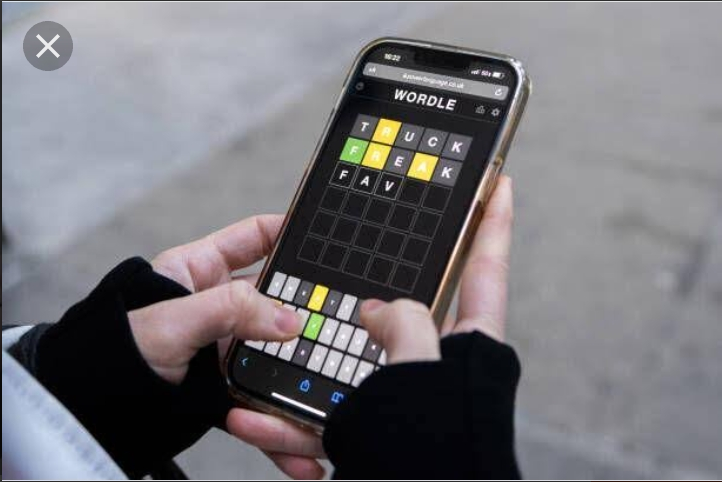Nytimes Games, Wordle, and the Power of Word Connections

In an era dominated by technology and the internet, our leisure activities have evolved significantly. One such evolution is the rise of online word games, which not only entertain but also stimulate our minds. Among the plethora of word games available, Nytimes Games and Wordle have captured the hearts of language enthusiasts and casual gamers alike. Beyond being sources of entertainment, these games offer a unique opportunity to explore the connections between words, language, and the human mind.
Nytimes Games: The Evolution of Crossword Puzzles
For generations, the New York Times crossword puzzle has been a staple of American culture. It’s a beloved daily ritual for millions of people, with a reputation for being both challenging and intellectually rewarding. Nytimes Games has taken this venerable tradition into the digital age, providing access to not only crosswords but also a wide array of word-based puzzles and games.
1. Crossword Puzzles: A Linguistic Challenge
The New York Times crossword puzzles have long been known for their difficulty and clever wordplay. They require a deep understanding of language, an extensive vocabulary, and the ability to make connections between seemingly unrelated words or phrases. Solving a crossword puzzle is not just about finding the right word; it’s about understanding the subtle nuances of language and how words fit together.
2. Mini Crossword: A Daily Brain Teaser
For those who don’t have the time to tackle the full crossword puzzle, Nytimes Games offers a daily mini crossword. This bite-sized puzzle still presents a challenge but can be completed in a matter of minutes. It’s a great way to engage with language and exercise your brain, even on the busiest of days.
3. Spelling Bee: Exploring Word Families
Another popular game within Nytimes Games is Spelling Bee, where players must create as many words as possible using a set of letters. This game encourages players to explore word families, finding words that share common roots or prefixes. It’s a fun and educational way to discover the interconnectedness of words.
Wordle: The Simplicity of Guessing and Connection
Wordle, in contrast to the elaborate crosswords of Nytimes Games, is a minimalist word game that has taken the internet by storm. With its simple interface and straightforward gameplay, Wordle challenges players to guess a five-letter word in six attempts. The game’s brilliance lies in its ability to test not just your vocabulary but also your word connection skills.
1. The Art of Word Connection
In Wordle, players must make educated guesses about a hidden word based on feedback provided after each attempt. This feedback comes in the form of colored tiles: yellow for correct letters in the wrong position and green for correct letters in the correct position. This mechanic encourages players to make connections between the letters they’ve tried and the feedback received.
2. Vocabulary Expansion
Wordle Unlimited is not just about guessing; it’s about experimenting with different combinations of letters and making connections between words you know and the ones you’re trying to guess. This process naturally leads to vocabulary expansion as players encounter new words and learn how they are related to the words they already know.
3. Word Association and Deductive Reasoning
Wordle also taps into the human mind’s ability to make word associations and engage in deductive reasoning. As players make guesses and receive feedback, they start forming mental lists of words that fit the given criteria. This mental exercise enhances word connections and improves problem-solving skills.
III. The Connection Between Nytimes Games and Wordle
While Nytimes Games and Wordle may seem quite different at first glance, they share a common thread: the exploration of word connections. Whether you’re deciphering a crossword clue or making educated guesses in Wordle, you’re constantly making connections between words, letters, and meanings.
1. Word Roots and Origins
Both Nytimes Games and Wordle encourage players to delve into the roots and origins of words. Crossword puzzles often require knowledge of etymology to solve clues, while connections unlimited players might recognize word patterns based on their familiarity with word origins.
2. Vocabulary Enrichment
One of the most significant benefits of playing both Nytimes Games and Wordle is vocabulary enrichment. As you encounter new words and their meanings, you naturally expand your linguistic knowledge. This newfound vocabulary can be applied in daily life, enhancing communication and comprehension.
3. Cognitive Benefits
The mental gymnastics involved in solving crossword puzzles and playing Wordle provide numerous cognitive benefits. These games stimulate the brain, improve memory, enhance problem-solving abilities, and foster creativity. They are not just pastimes but tools for maintaining mental sharpness.
Conclusion
In a world where technology often distracts us from the beauty of language and the intricacies of word connections, Nytimes Games and Wordle serve as valuable reminders of the power of words. These games are not just about entertainment; they are about fostering a deeper understanding of language and encouraging us to explore the rich tapestry of words that make up our world.
Whether you’re a dedicated crossword enthusiast or a casual Wordle player, these games offer a unique opportunity to engage with language, expand your vocabulary, and sharpen your cognitive skills. So, the next time you pick up your smartphone or open your browser to play a word game, remember that you’re not just having fun—you’re also strengthening the connections between your mind and the world of words.




